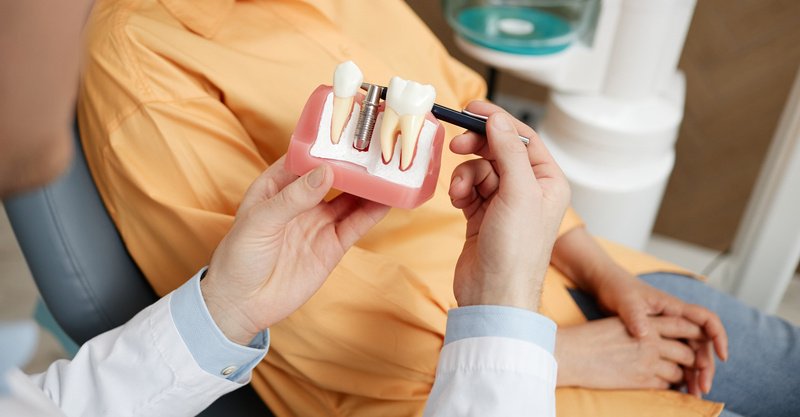The Calcium Score Test, also known as a coronary calcium scan, is a vital diagnostic tool that helps healthcare providers assess the risk of heart disease, according to the American College of Cardiology. They note that by measuring the amount of calcium in the walls of the coronary arteries, this non-invasive test can indicate the presence of atherosclerosis, a condition that can lead to heart attacks and strokes. Utilizing advanced imaging technology, the calcium score test provides critical information that enables doctors to determine whether preventive treatments or lifestyle changes are necessary to reduce the risk of cardiovascular events.
What Is a Calcium Score Test?
The Calcium Score Test, also known as a coronary calcium scan, is a specialized imaging test that provides valuable insights into the health of your heart, according to the National Heart, Lung, and Blood Institute. They explain that this test is particularly useful for identifying the presence of calcified plaque within the coronary arteries, which can be an early indicator of coronary artery disease. By detecting these calcium deposits, healthcare providers can better assess your risk of heart attack or stroke and recommend appropriate preventive measures.
The National Heart, Lung, and Blood Institute notes that the test itself is straightforward and non-invasive. It involves the use of a computed tomography (CT) scanner to capture detailed images of your heart. During the procedure, you will lie on a table that slides into the CT scanner. The scanner then takes multiple X-ray images of your heart, which are compiled to create a comprehensive view of your coronary arteries. These images allow doctors to measure the amount of calcium present, providing a "calcium score" that quantifies your risk level.
A higher calcium score indicates a greater amount of calcified plaque, which correlates with an increased risk of cardiovascular events, according to the American College of Cardiology. Conversely, a lower score suggests minimal or no plaque buildup, indicating a lower risk. The results of the calcium score test can guide your healthcare provider in developing a personalized treatment plan, which may include lifestyle changes, medications, or other interventions aimed at reducing your risk of heart disease, according to the National Heart, Lung, and Blood Institute.
Who Should Get a Calcium Score Test?
Determining who should undergo a Calcium Score Test is crucial for effectively assessing and managing the risk of heart disease, according to the American College of Cardiology. They explain that this test is particularly beneficial for individuals who fall into specific high-risk categories, as it can provide early detection of potential cardiovascular issues and guide preventive care.
Below is a list of key groups that may benefit from this important diagnostic tool, according to the American Heart Association.
-
Have a Family History of Heart Disease: Individuals with close relatives who have experienced heart disease are at a higher risk and should consider this test for early detection and prevention.
-
Use Tobacco Products Now or in the Past: Current or former smokers are at an increased risk of developing coronary artery disease due to the damaging effects of tobacco on the cardiovascular system.
-
Have a History of High Cholesterol, Diabetes, or High Blood Pressure: Conditions such as high cholesterol, diabetes, and hypertension are significant risk factors for heart disease, making the calcium score test a valuable tool for individuals with these medical histories.
-
Are Overweight (a Body Mass Index, or BMI, Higher Than 25) or Obese (a BMI Higher Than 30): Excess weight, particularly obesity, is closely linked to an elevated risk of heart disease, making early screening essential.
-
Have an Inactive Lifestyle: Sedentary behavior is a known risk factor for cardiovascular issues, and individuals with an inactive lifestyle may benefit from a calcium score test to assess their heart health.
-
Have Other Nontraditional Risk Factors: Certain nontraditional risk factors, such as chronic inflammatory conditions or early menopause, can also contribute to heart disease risk, warranting consideration for this test.
How Do I Prepare for a Calcium Score Test?
Proper preparation for a Calcium Score Test is essential to ensure accurate results and a smooth testing experience, according to the American Heart Association.
Here are some key steps you should take before undergoing the test, to help you to be well-prepared and informed:
-
Tell Your Provider What Allergies You Have, Which Medications You Take, and Whether You’re Pregnant or Could Be Pregnant: Informing your healthcare provider about any allergies, medications, and potential pregnancy is crucial for your safety and to avoid any complications during the test.
-
Avoid Food, Drink, Caffeine, and Tobacco for Four Hours Before Your Calcium Score Test: Refrain from consuming food, beverages, caffeine, and tobacco in the hours leading up to your test to ensure the most accurate results.
-
You May Need to Remove Any Metal on Your Body, Including Jewelry and Glasses: Metal objects can interfere with the imaging process, so you will likely be asked to remove any jewelry, glasses, or other metal items.
-
Change Into a Hospital Gown: To facilitate the test, you will be required to change into a hospital gown provided by the facility.
-
Expect to Lie on Your Back on a Special Table That Slides Into the Middle of a Scanner With a Doughnut Shape: During the test, you will lie on a table that moves into the scanner, which has a circular, doughnut-like shape designed to capture detailed images of your heart.
-
Expect a Provider Will Clean (and Possibly Shave) Three Small Areas of Your Chest: For accurate electrode placement, a healthcare provider will clean and may shave small areas on your chest.
-
Expect Small, Sticky Electrode Patches on the Prepared Areas: These electrodes will be attached to an electrocardiogram (EKG) monitor, which tracks your heart’s electrical activity during the test and helps to time the imaging with your heartbeat.
What Should I Expect During a Calcium Score Test?
Understanding what to expect during a Calcium Score Test can help ease any anxiety and ensure you are well-prepared for the procedure. The National Heart, Lung, and Blood Institute explains that during the test, you will lie on your back on a special table that slides into the CT scanner, which has a doughnut-shaped structure.
Additionally, small, sticky electrode patches will be placed on your chest to monitor your heart's electrical activity through an electrocardiogram (EKG). The table will move slowly through the scanner while you are instructed to hold your breath for short periods to ensure clear images.
The entire procedure is quick, typically lasting about 10 to 15 minutes, and is painless, according to the American College of Cardiology. They note that after the test, you can resume your normal activities immediately, as there is no recovery time needed. Your healthcare provider will review the images and discuss the results with you, helping to determine any necessary next steps in your heart health management.
Calcium Score Test Results
Interpreting the results of your Calcium Score Test is a crucial step in understanding your heart health and determining the appropriate course of action, according to the American Heart Association. They note that the calcium score is a numerical value that reflects the amount of calcified plaque in your coronary arteries. A score of zero indicates no detectable plaque, suggesting a low risk of heart disease. Scores between 1 and 99 indicate mild plaque buildup and a relatively low to moderate risk. A score between 100 and 399 signifies moderate plaque accumulation, indicating a higher risk of heart disease and the potential need for medical intervention. Scores of 400 or higher suggest extensive plaque buildup and a high risk of cardiovascular events, warranting immediate attention and possibly more aggressive treatment or lifestyle changes.
Following the test, your healthcare provider will discuss your results with you in detail, according to the National Heart, Lung, and Blood Institute. They explain that if your score is low, you may only need periodic monitoring and lifestyle modifications to maintain your heart health. For moderate scores, your provider might recommend medications, such as statins, and more frequent monitoring. High scores typically require a comprehensive treatment plan, which may include medications, lifestyle changes, and possibly further diagnostic tests to evaluate the severity of your condition. Regular follow-ups with your healthcare provider will be essential to manage your risk and ensure the effectiveness of your treatment plan, according to the American College of Cardiology.
Calcium Score Test Risk
While the Calcium Score Test is a valuable tool for assessing heart disease risk, it is important to be aware of the potential risks associated with the procedure. The American Heart Association notes that the primary risk associated with the Calcium Score Test is exposure to a small amount of radiation from the CT scan. Although the radiation dose is relatively low and generally considered safe, repeated exposure over time could potentially increase the risk of cancer.
Additionally, there is a slight chance of an allergic reaction to the contrast dye if it is used during the test, although this is rare, according to the American Heart Association. Despite these risks, the American Heart Association notes that the benefits of early detection and prevention of heart disease often outweigh the potential downsides, making the Calcium Score Test a valuable diagnostic tool for those at risk.


 LinkedIn
LinkedIn










